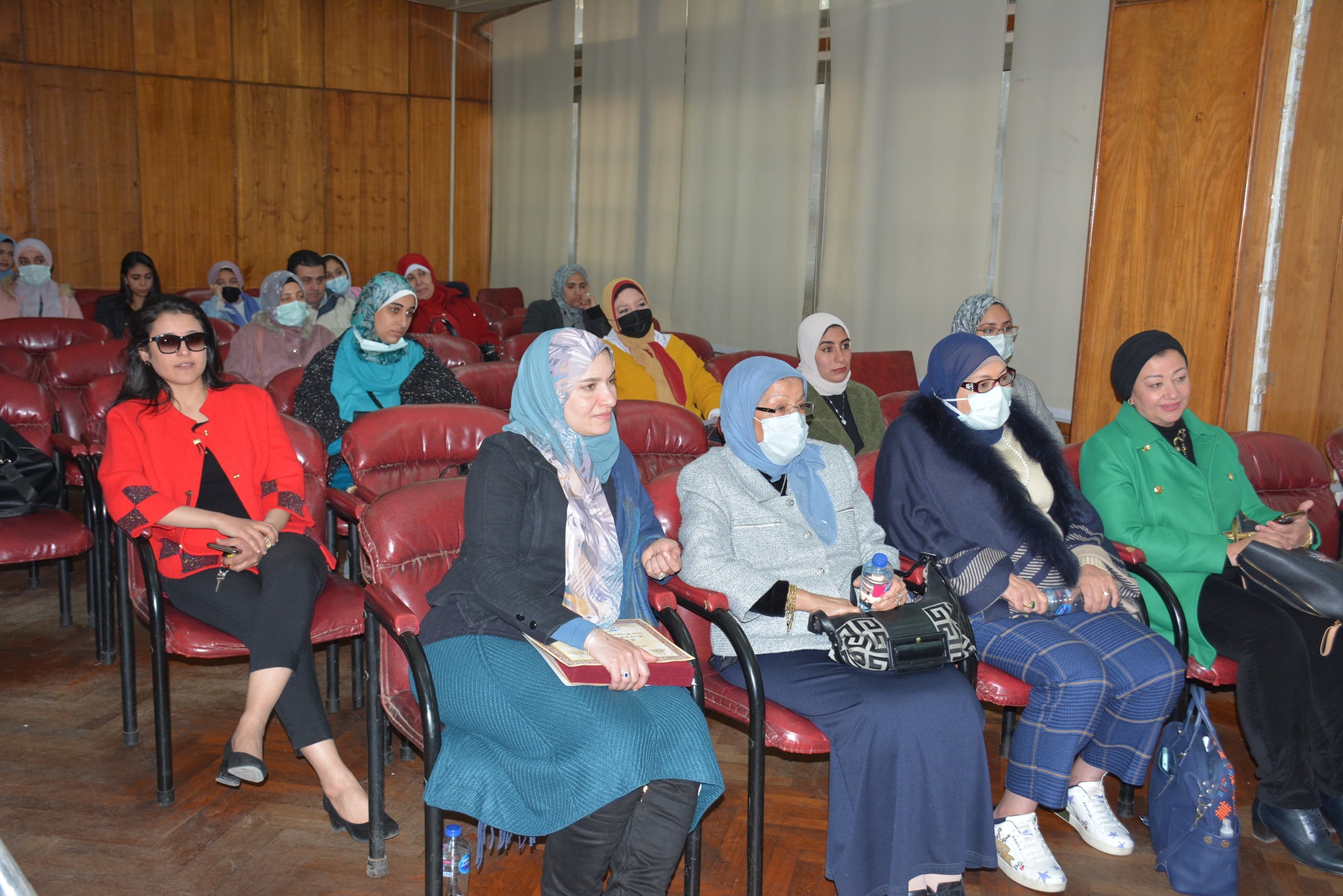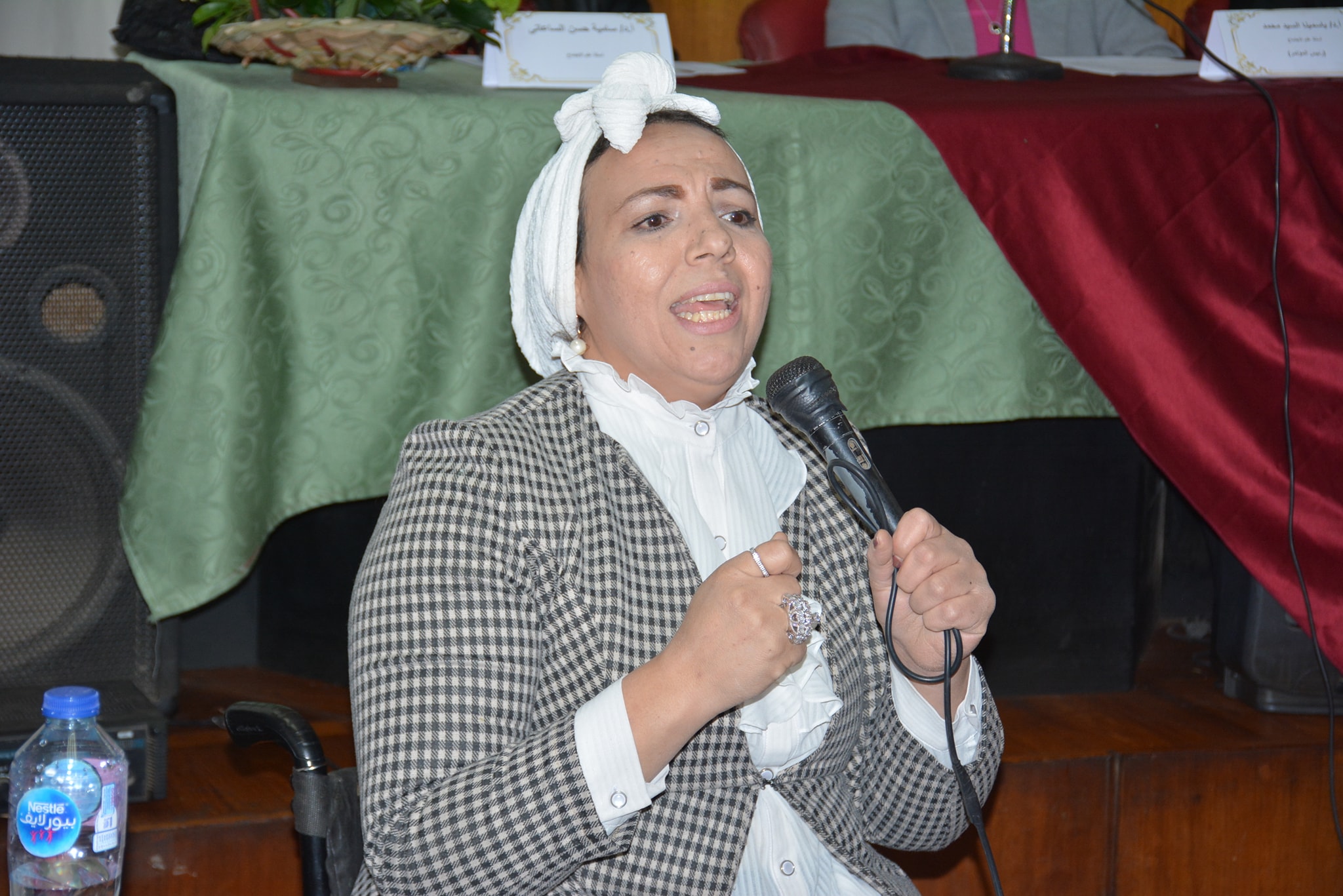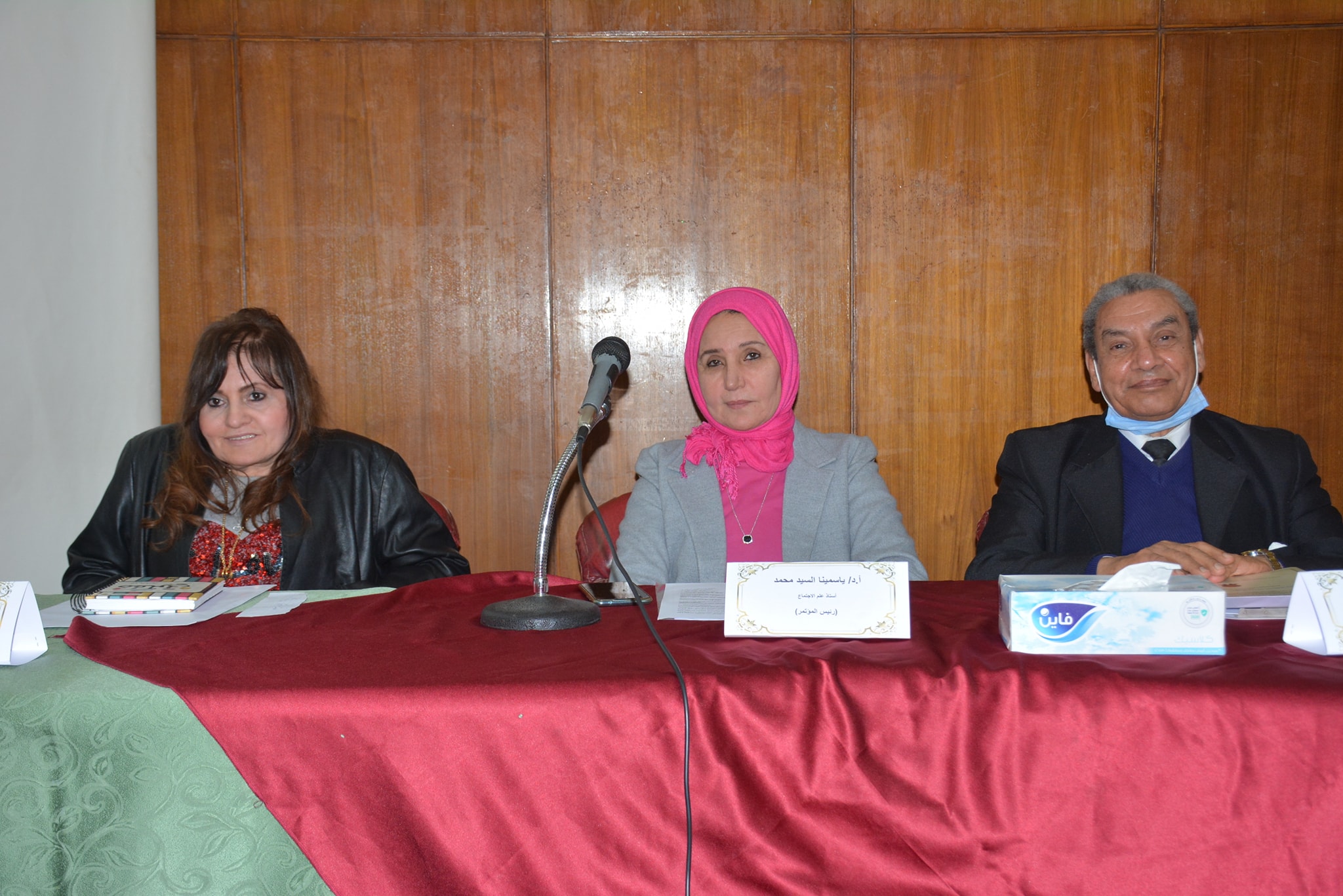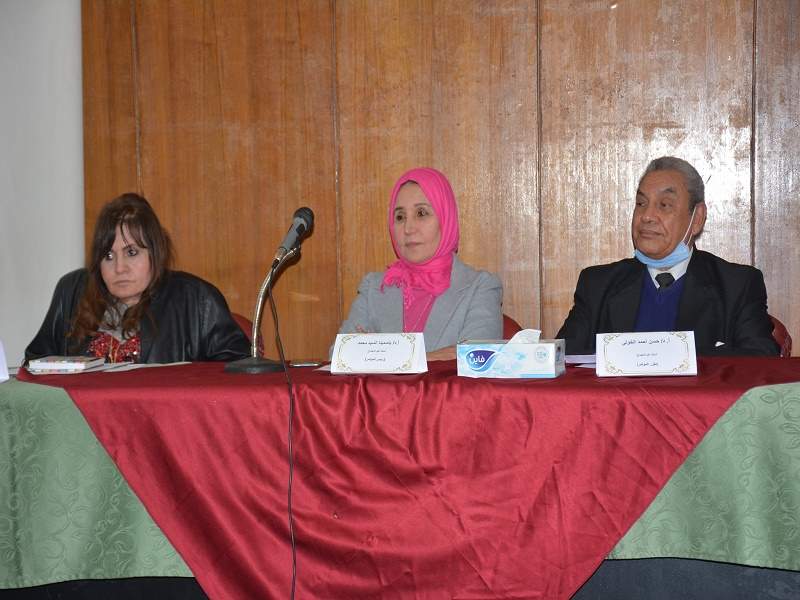The Scientific Conference of the Department of Sociology on the sidelines of the Science Week 2022 at the Faculty of Girls
Within the activities of the Science Week at the Women’s College of Arts, Sciences and Education from March 19 to 24, 2022, a faculty conference entitled “Development Issues between Present Challenges and Future Visions” was held under the auspices of Prof. Dr. Mahmoud El-Metini, President of Ain Shams University, and Prof. Dr. Abdel Fattah Saoud, Vice President for Education and Student Affairs, and Prof. Dr. Ayman Saleh, Vice President for Graduate Studies and Research, Prof. Dr. Hesham Tamraz, Vice President for Community Service and Environmental Development, Prof. Dr. Amira Youssef, Dean of the Faculty of Girls, Prof. Dr. Hanan Al-Shaer, Vice Dean for Graduate Studies and Research Affairs, and Prof. Dr. Mai Helmy, Vice Dean for Education and Student Affairs, Prof. Dr. Heba Barakat, Vice Dean for Community Service and Environmental Development.
Within the framework of participating in these events, the scientific conference of the Department of Sociology was held in the conference hall of the faculty, headed by Prof. M. Dr. Yasmina El-Sayed Mohamed, head of the department, and in the presence of a group of department professors: Prof. Dr. Etimad Allam, Prof. Dr. Faten Ahmed Ali, Prof. Aida Fouad Al-Nabawi, Prof. Dr. Alia Habib, Prof. Dr. Hana Al-Marsafi, Prof. Dr. Alia Abdel Aal, Prof. M. Dr. Mohamed Abdel Rahman, in addition to most of the staff and the teaching assistants in the department.
The conference was opened with a presentation by the department head of the department's achievements during this academic year, then a presentation by Prof. Dr. Hassan Ahmed El-Khouly (Professor in the Department) by a paper entitled: “Integration between folklore, literature, art and media to serve development issues, where Dr. El-Khouly talked about the relationship between folklore, literature, art and media and how to integrate them to serve development issues, and Dr. El-Khouly cited examples of literary novels Films, and media campaigns that used elements of folklore in educating the masses about some of the problems of society, advocating for the empowerment of women, and focusing on some aspects of development.
 |
 |
 |
||
Also Prof. Dr. Samia Hassan Al-Saati (Professor in the Department) held a symposium on the challenges of the developmental participation of Egyptian women and proposals for solutions, "Rural Women as a Model". She began by clarifying the differences between some terms such as development and growth, change and change, and development as a comprehensive process, and explained the various factors affecting the developmental role of women, and the challenges of developmental participation. for rural women, and the importance of the role of rural educated women in spreading awareness among uneducated rural women of their rights and their ability to participate in the comprehensive development process in their society. Her research has raised as many questions as it has answered.
Dr. Gehad Ibrahim Hanafi (teacher in the department) presented a workshop entitled: "The Power of Positive Thinking and the Ingredients for Success," in which she talked about the rules, characteristics, and steps of positive thinking and its relationship to achieving success, and pointed out many examples of positive thinking models in life, and the importance of setting goals and focusing on achieving them.
The conference concluded with a number of recommendations, the most important of which are:
1- The necessity of employing some elements of the Egyptian folklore to achieve development.
2- The importance of integrating and merging different sciences such as folklore, literature and media to achieve the various aspects of comprehensive development.
3- Emphasizing the role of the educated rural women in spreading awareness among the uneducated women in the Egyptian countryside.
4- The necessity of combining alphabetic literacy and political and cultural illiteracy for rural women to prepare them to participate in development processes.
5- Engaging rural women in their real environment is one of the most important ways to identify the real obstacles to their participation in the development process.
On the sidelines of the conference, the winning students were honored with the best master’s and doctoral theses during the academic year (2021-2022), and some faculty members and the supporting staff were honored for their active participation in the department’s activities during the current academic year.


.svg)




